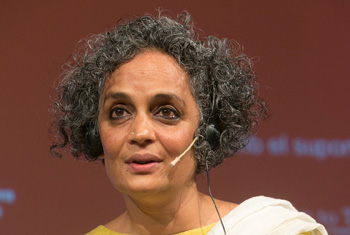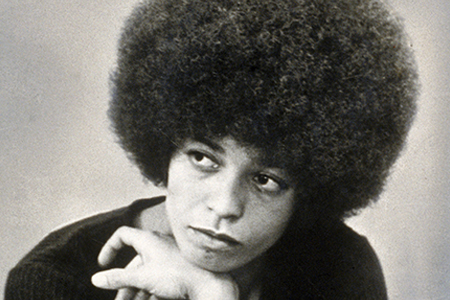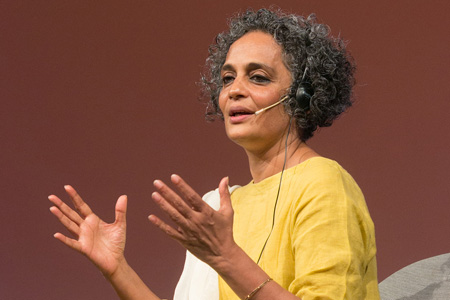Arundhati Roy
Writer, activist
Arundhati Roy (Shillong, 1959) is a writer and activist, widely recognised both for her fictional works and her writings on politics, the environment and human rights. Having studied at the Delhi School of Architecture, she soon showed a considerable aptitude for literature, writing scripts for films and television series. In 1997 she won the Man Booker Prize for her debut novel The God of Small Things (Flaming, 1997) and thus gained a wide readership. An anti-capitalist and pacifist thinker, Roy has long been critical of the Indian government. Her firm opposition to the nuclear bomb tests in Rajasthan and her support for the independence of Kashmir are expressed in such non-fiction works as The Cost of Living (Flamingo, 1999). Her commitment to the pacifist movement was rewarded when she received the 2004 Sydney Peace Prize. Among her more recent notable publications are Walking with the Comrades (Penguin, 2011), Kashmir: The Case for Freedom (Verso, 2011), and Capitalism: A Ghost Story (Haymarket Books, 2014). In 2017, she published her first work of fiction in twenty years, The Ministry of Utmost Happiness (Hamish Hamilton, 2017).
Update: 21 September 2017



